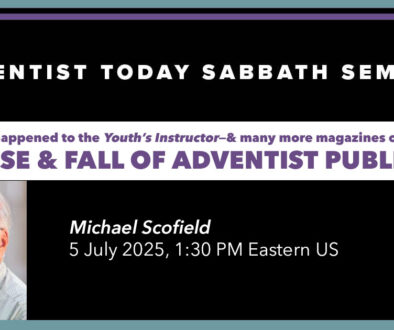Sharing Scripture for August 23 – 29
[symple_heading style=”” title=”Developing a Winning Attitude” type=”h1″ font_size=”40″ text_align=”center” margin_top=”0″ margin_bottom=”30″ color=”undefined” icon_left=”” icon_right=””]
This is a tool for you to use if you lead a Sabbath School (SS) class or small group. It is keyed to the Bible texts used in the current week’s Adult SS Lesson and includes a brief story from current news you can use to introduce the discussion and then a series of discussion questions in a relational pattern designed to build fellowship and spiritual reflection.
For use: Aug 23 – 29
Texts: John 4:27-30, 39-42; Matthew 15:21-28; 2 Thessalonians 1:1-4; Romans 15:7; Ephesians 4:32; 1 Peter 3:15
Lydia Denworth was on tour promoting her new book, Friendship: The Evolution, Biology, and Extraordinary Power of Life’s Fundamental Bond, when the pandemic hit. She and her family left their home in Brooklyn, New York, and moved to a farmstead in central New York state. What a change! The whirlwind of book promotion to living quietly, and from being surrounded by people and friends to isolating with two other families was what helped her notice the cyclical nature of news stories.
“First it was ‘friends need to help each other,’ and then ‘you need to be able to keep connecting,’ and then it was ‘I hate Zoom, what do I do?’” she said.
Suddenly, Denworth and her book about friendship were in high demand. One of the main points in Denworth’s book is that friendship is as important to our health as diet and exercise. Friendship is about being present, “about showing up. And I really believe that you can show up from a distance.” A major way of showing up, Denworth said, “is by simply listening. And that, too, can be done remotely.”[1]
As we study about developing a winning attitude, we might consider that this phrase could have more than one meaning. It could mean that one looks at life and chooses an attitude that takes one forward, an attitude that makes it possible to meet goals and to forge on. When looked at in light of drawing others to Jesus, it could mean developing habits that show Christ in a way that draws people to choose to friendship with the Savior.
The stories in this week’s lesson show a variety of methods Jesus utilized when confronting or responding to people. The woman at the well would have been content being ignored but Jesus had other plans. While Jesus’s response to the Canaanite woman in Matthew 15 may seem abrupt or dismissive, to say the least, at the end of the encounter she is affirmed for her faith. Jesus’s words were exactly what her heart needed. Additionally, another woman who had no intention of being noticed anointed Jesus’s feet. Her story needed to permeate the hearts of anyone looking to Jesus just as the fragrance of that expensive perfume permeated the entire room.
With different approaches in each of these stories, how are we to know what tactics to follow when sharing Jesus’s story with others? The answer, which may seem simple, is at the same time complex. Isn’t that how it is with the Gospel? There is no pat answer, but there are simple guidelines such as those found in the texts for this lesson. Romans 15 reminds us to be accepting. Ephesians 4 reminds us to be tenderhearted and forgiving. In 1 Peter we learn the importance of always being ready to answer if someone asks.
Jesus’s answers were not a one-size-fits-all approach. Instead, they were specific for each person. The answer lies in talking with friends, and listening because we accept and care. Words come easier between friends.
[symple_divider style=”solid” margin_top=”20″ margin_bottom=”10″]
Connecting: Can you think of a time when someone asked you a question that could have led to a conversation about Jesus? Be prepared to share that encounter with the class via Zoom, text, or whatever way you are safely convening.
Sharing: Read John 4:27-30, 39-42. This woman was adept at avoiding a discussion that spoke to her heart. How did Jesus break through these barriers and what was her response when he did?
- Before we join the story, Jesus had asked her for something, a drink of water. Jews did not speak to Samaritans, yet Jesus asked for water, not worrying about what the disciples would say.
- The woman, who would have been content with a superficial conversation about where to worship, ran to tell her neighbors about Jesus.
- People of the village came because of the woman’s authentic testimony explaining that Jesus had told everything she had ever done.
- When asked to spend more time with them, Jesus stayed a few more days.
- The people of the village were given opportunity to learn and experience for themselves.
- Other:
Applying: Currently we are experiencing the world through the eyes of a pandemic. Social distancing and isolation make it nearly impossible to reach out to others. Could you show neighbors, family, fellow church members that you care about them and accept them through an email, text, or note?
Valuing: Prayerfully ponder Romans 8:26: “In certain ways we are weak, but the Spirit is here to help us. For example, when we don’t know what to pray for, the Spirit prays for us in ways that cannot be put into words.” CEV Ask that the Holy Spirit will also give you words and wisdom when witnessing of God’s love.
~ Joy Veverka
[1] https://www.deseret.com/entertainment/2020/5/14/21252656/lydia-denworth-friendship-book-effects-health-physical-emotional-social-lives-coronavirus-covid-19




